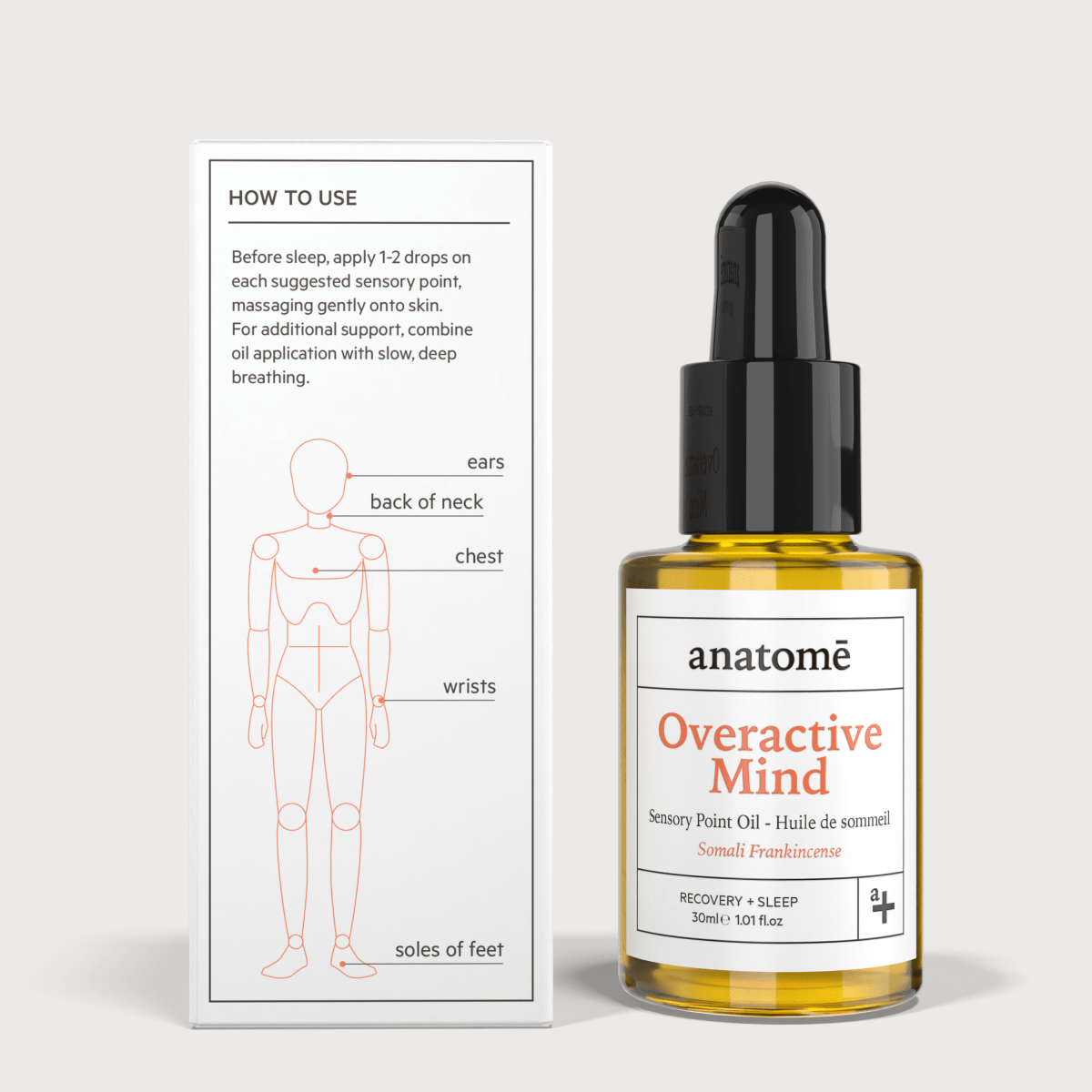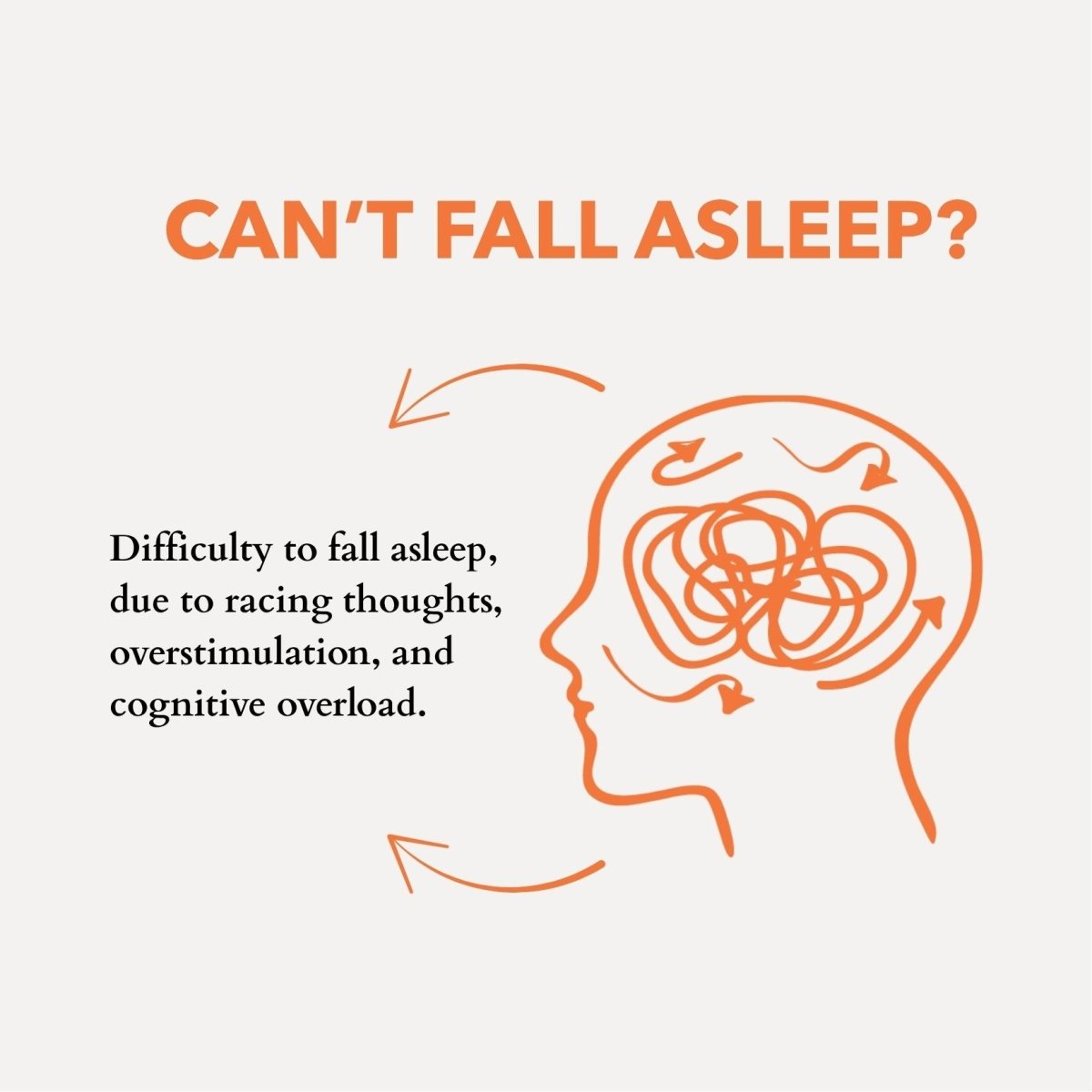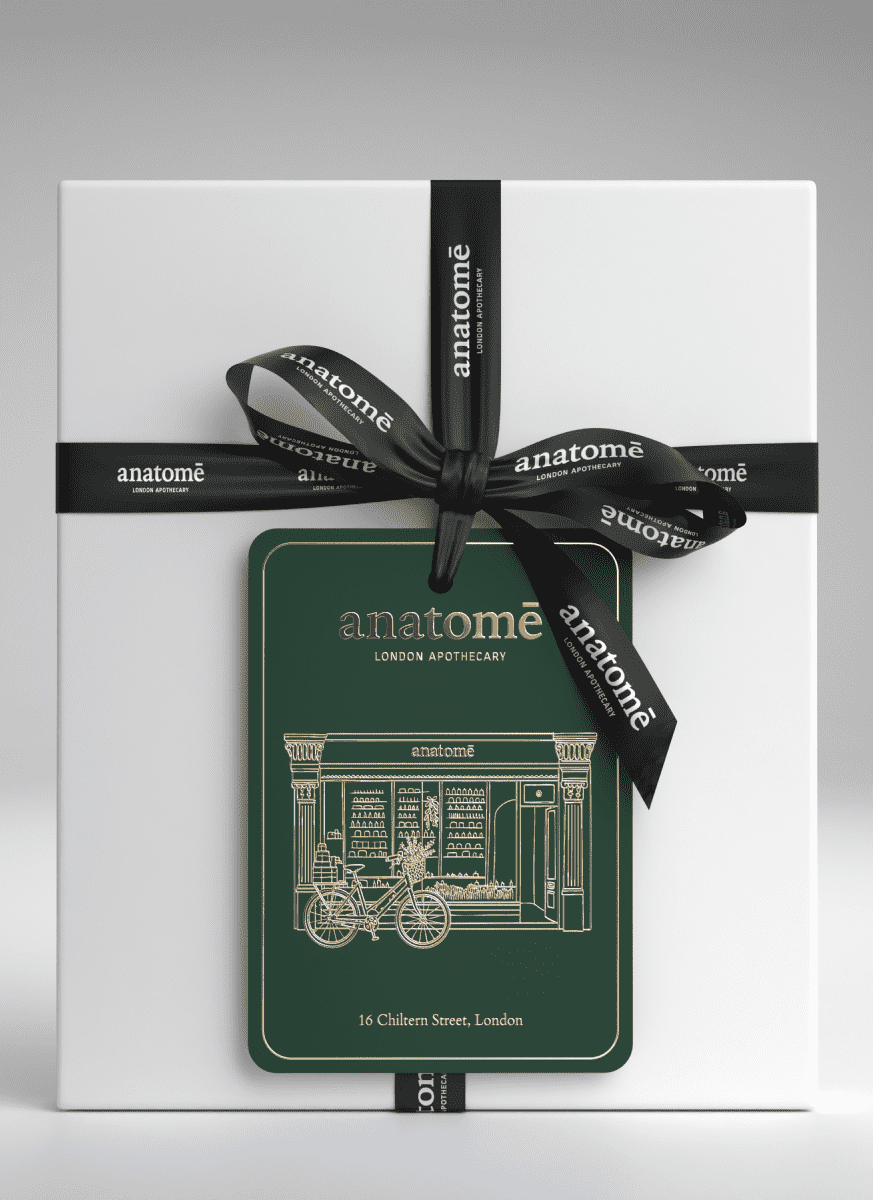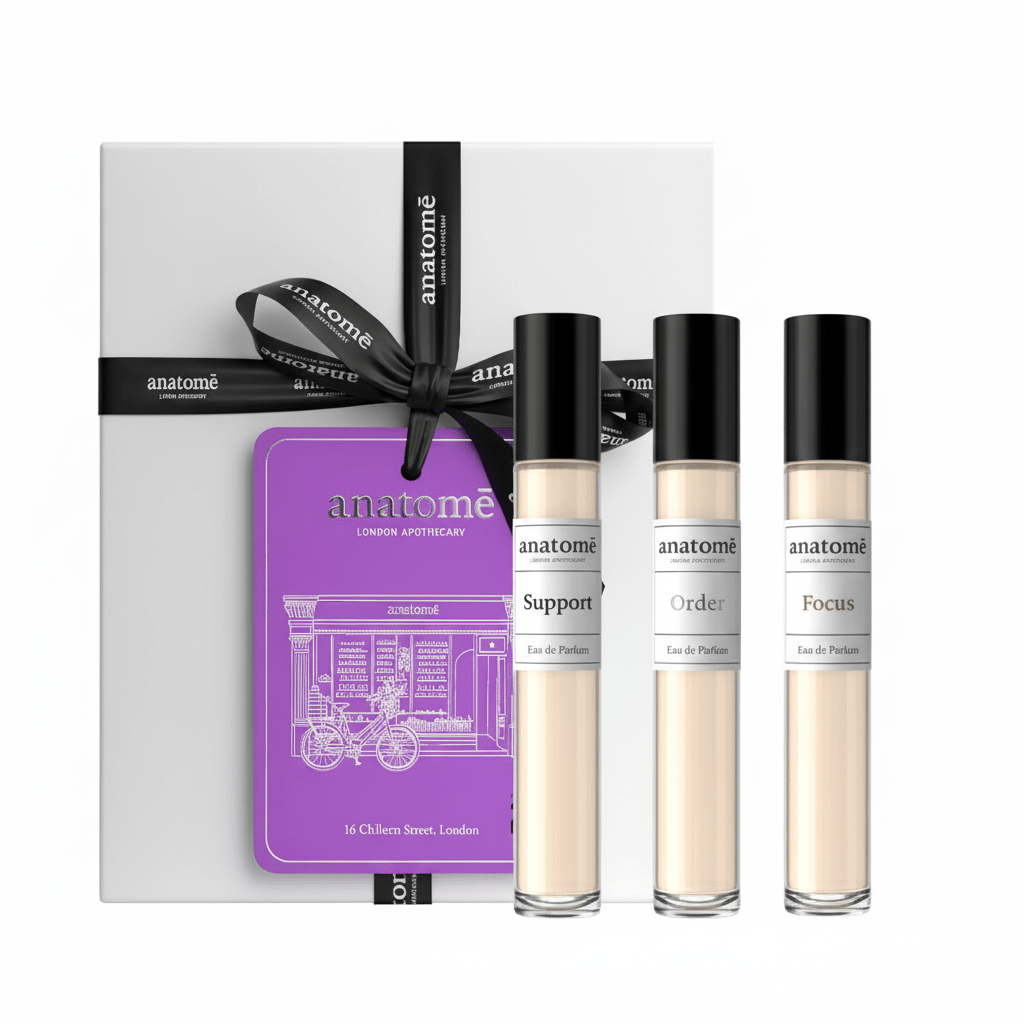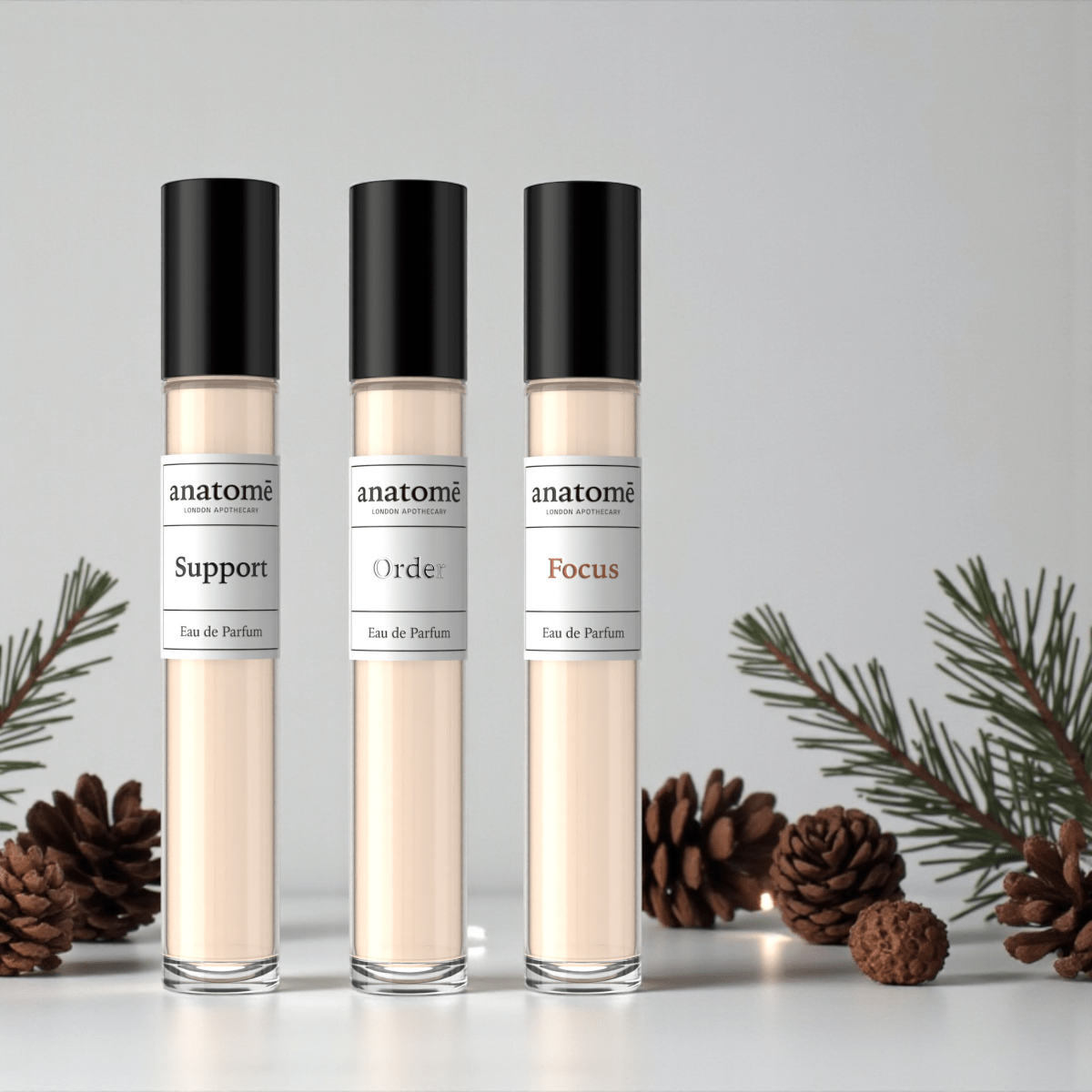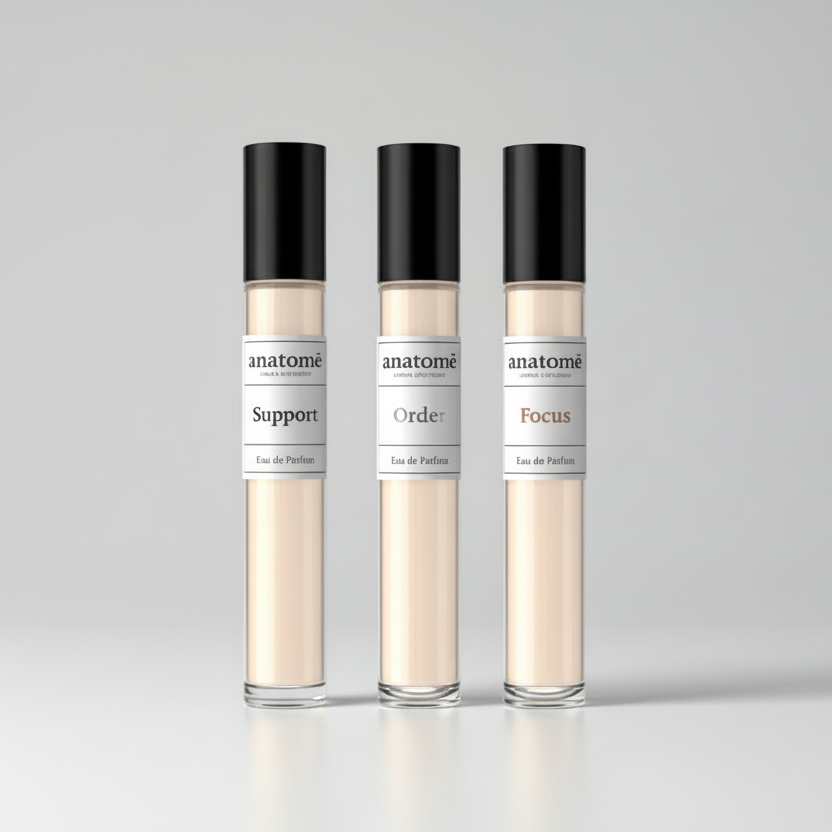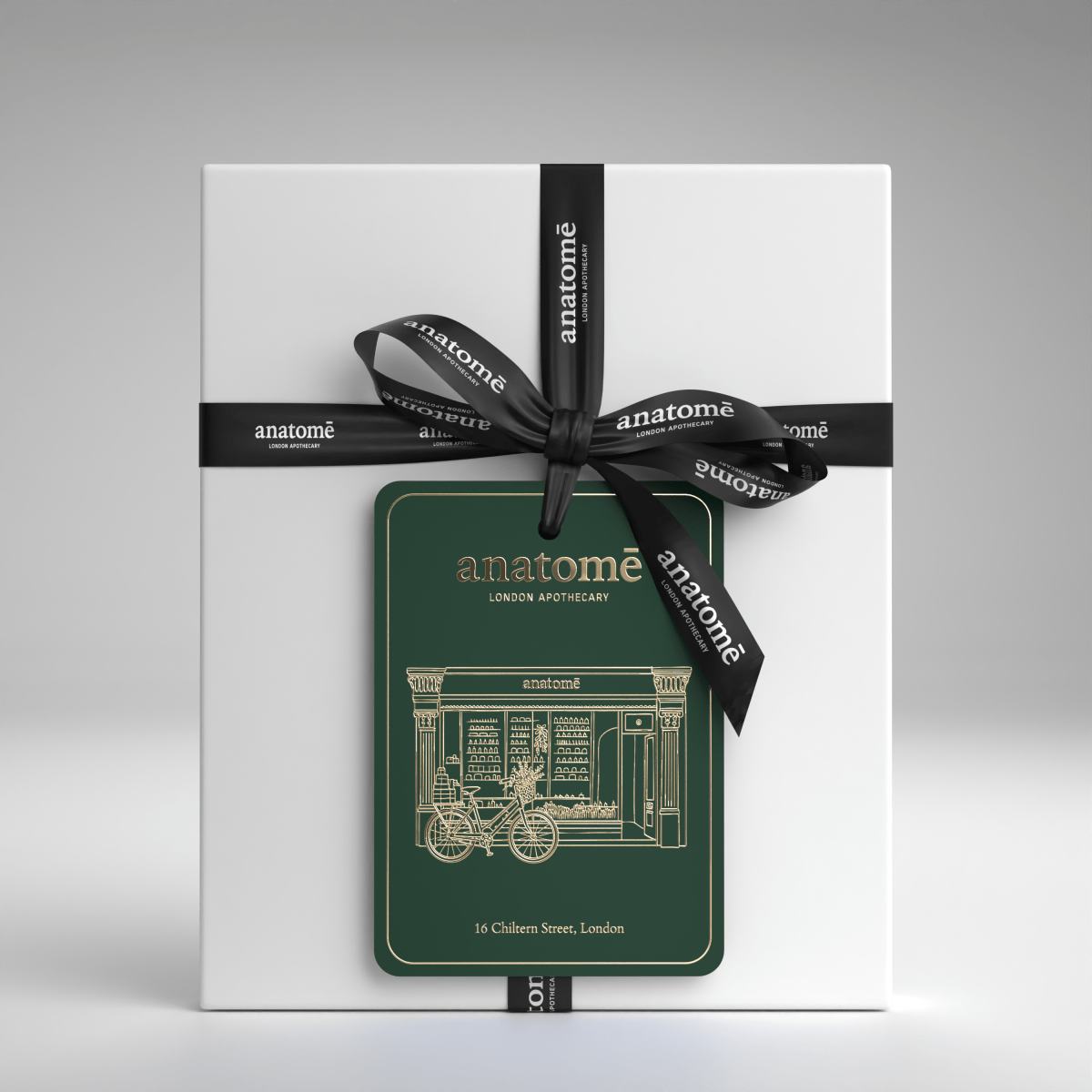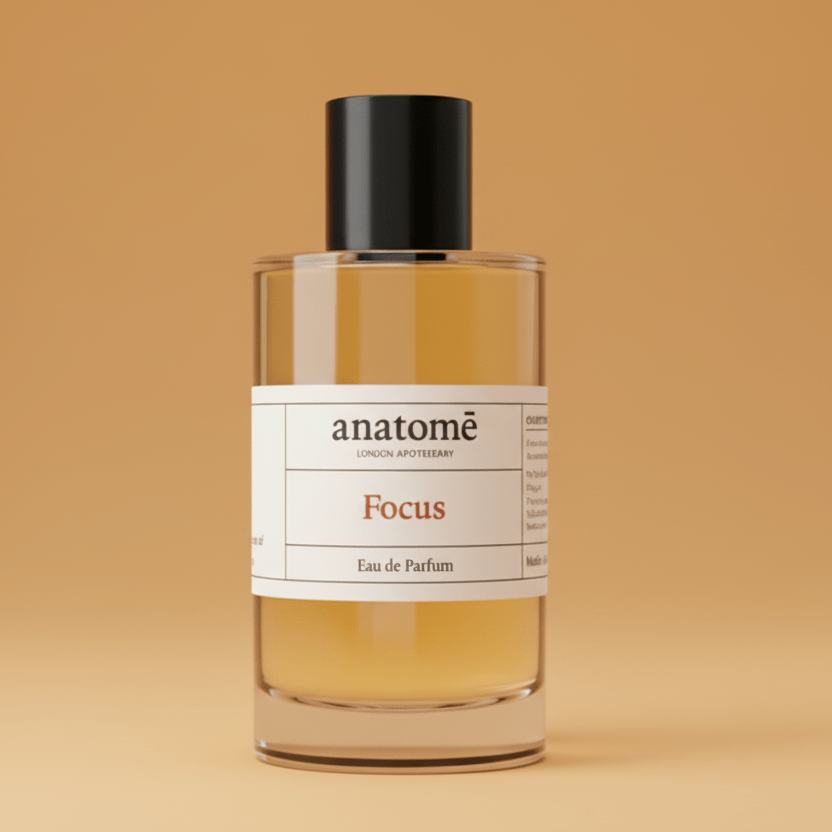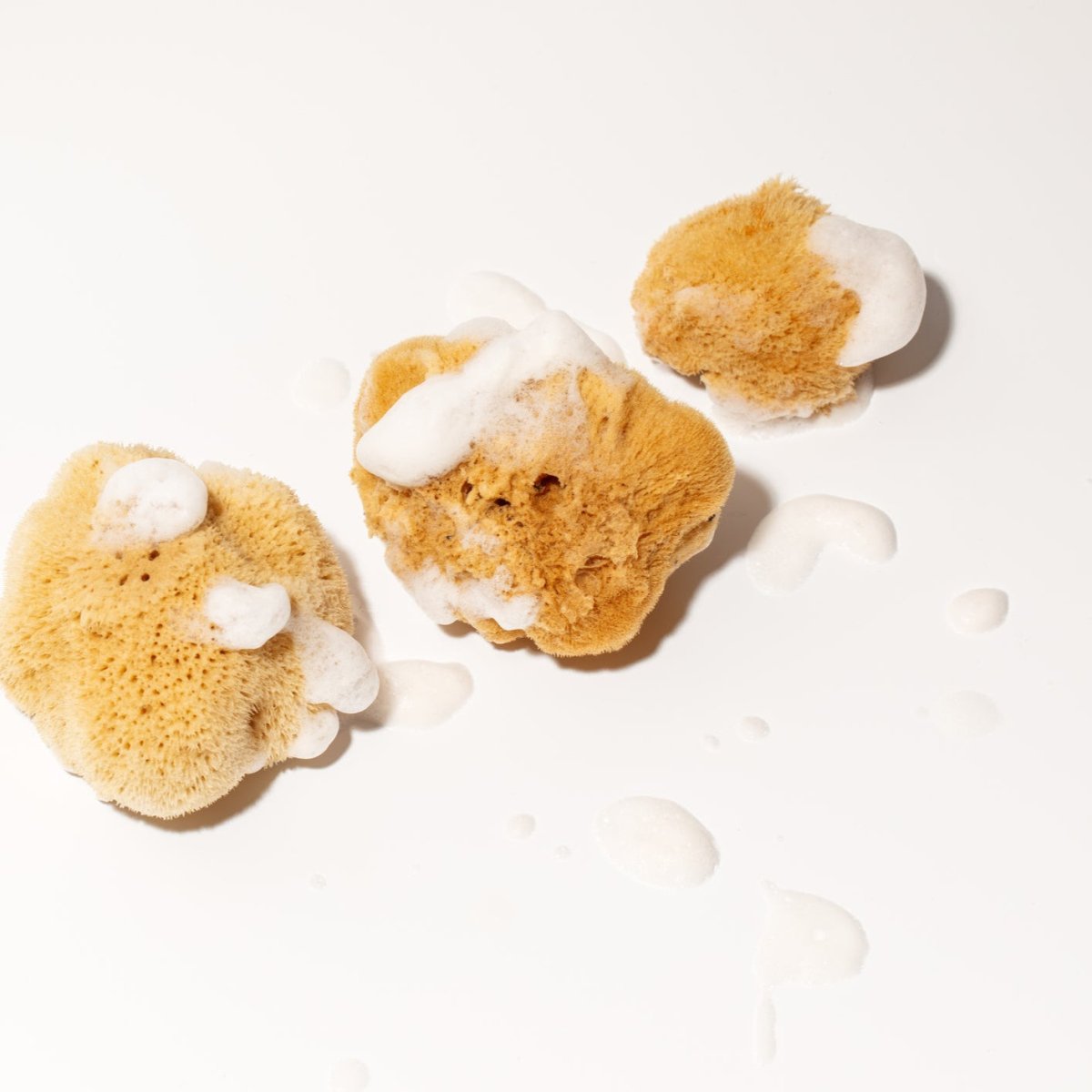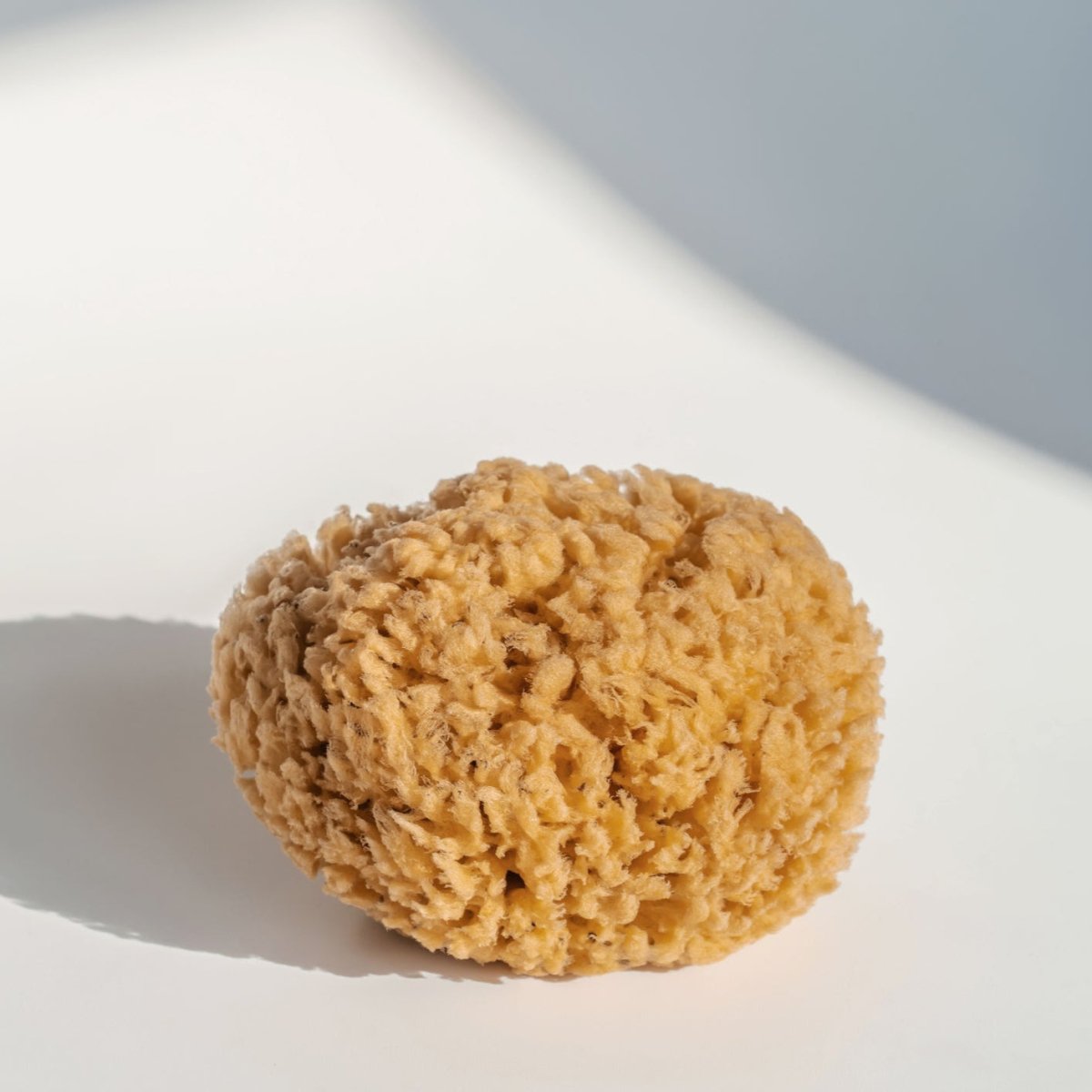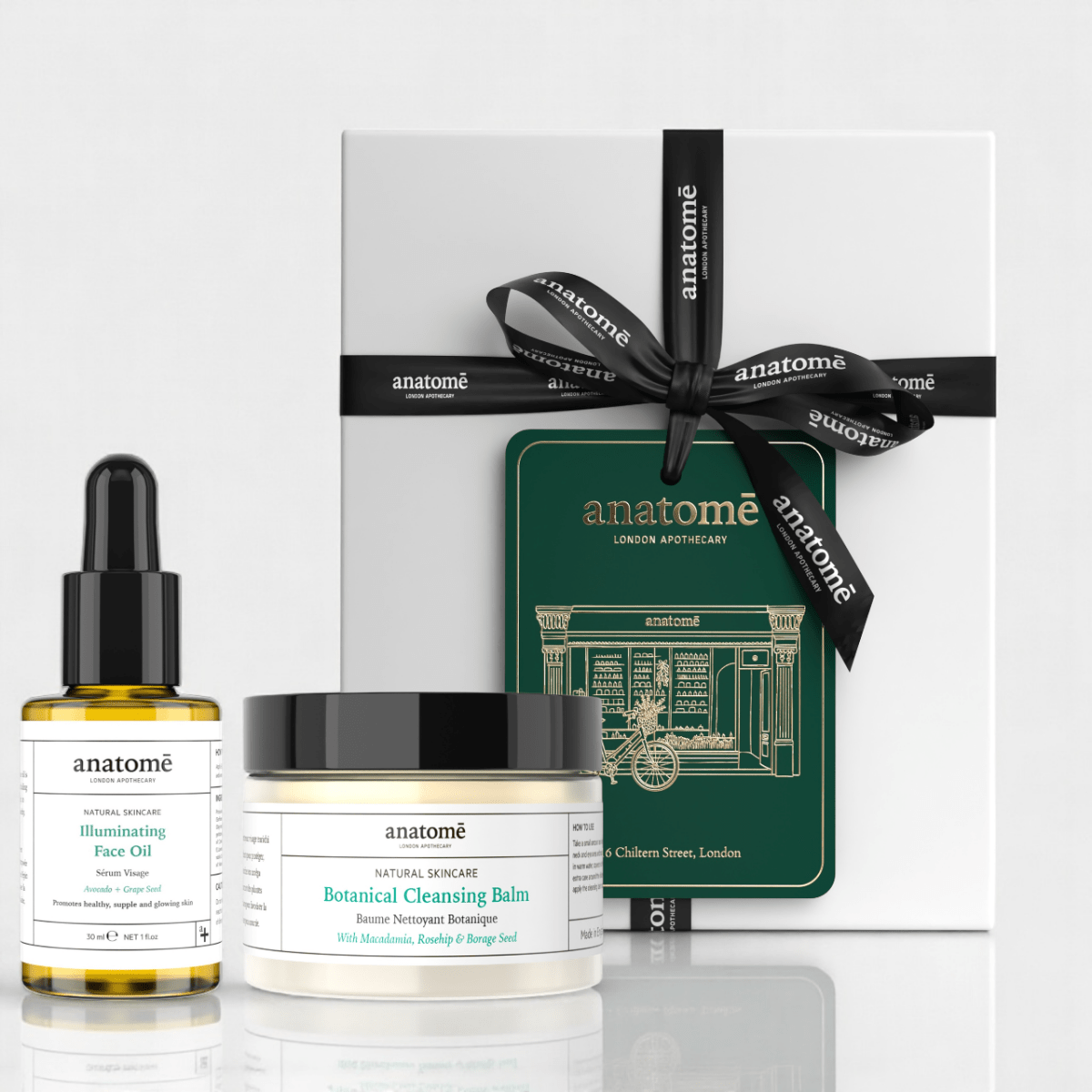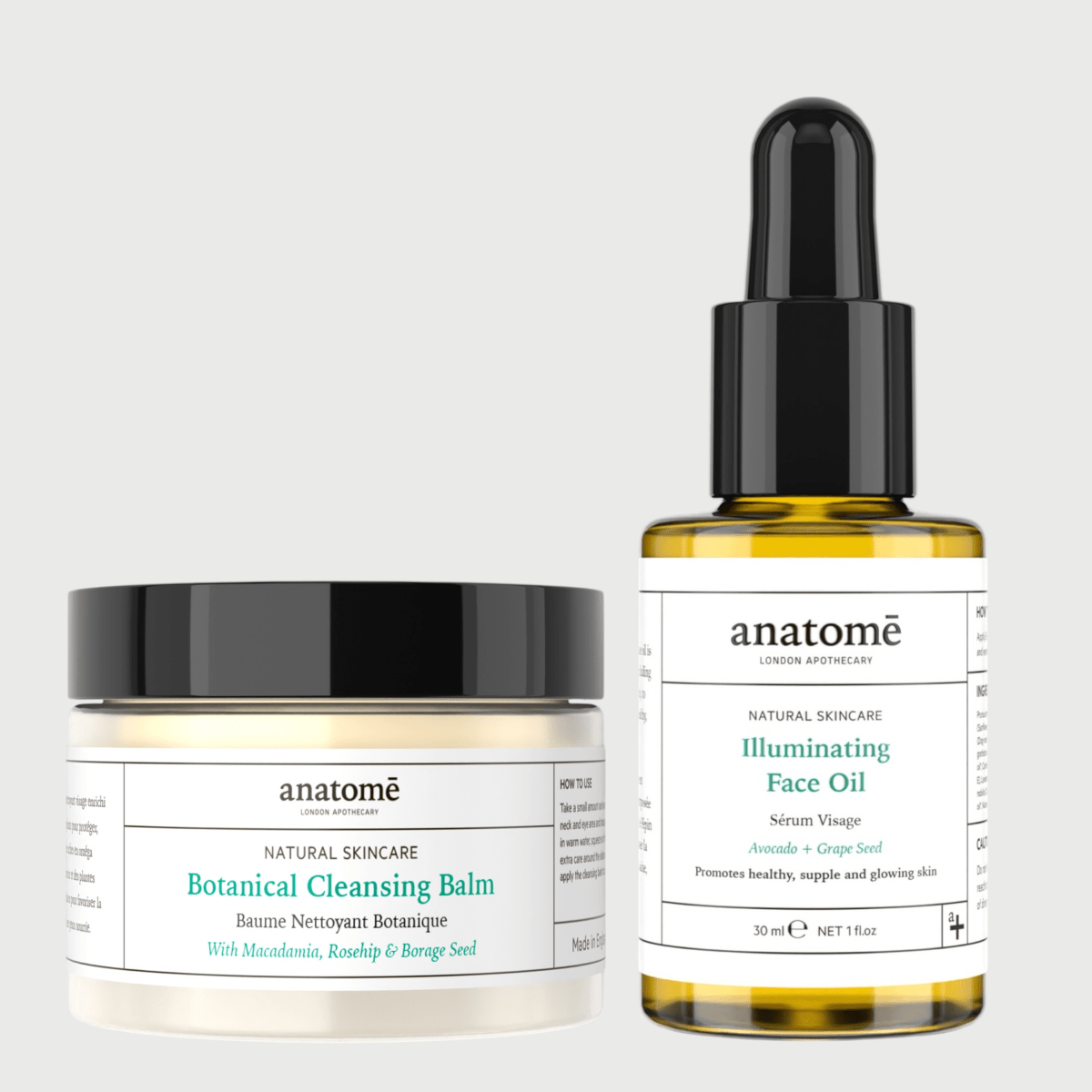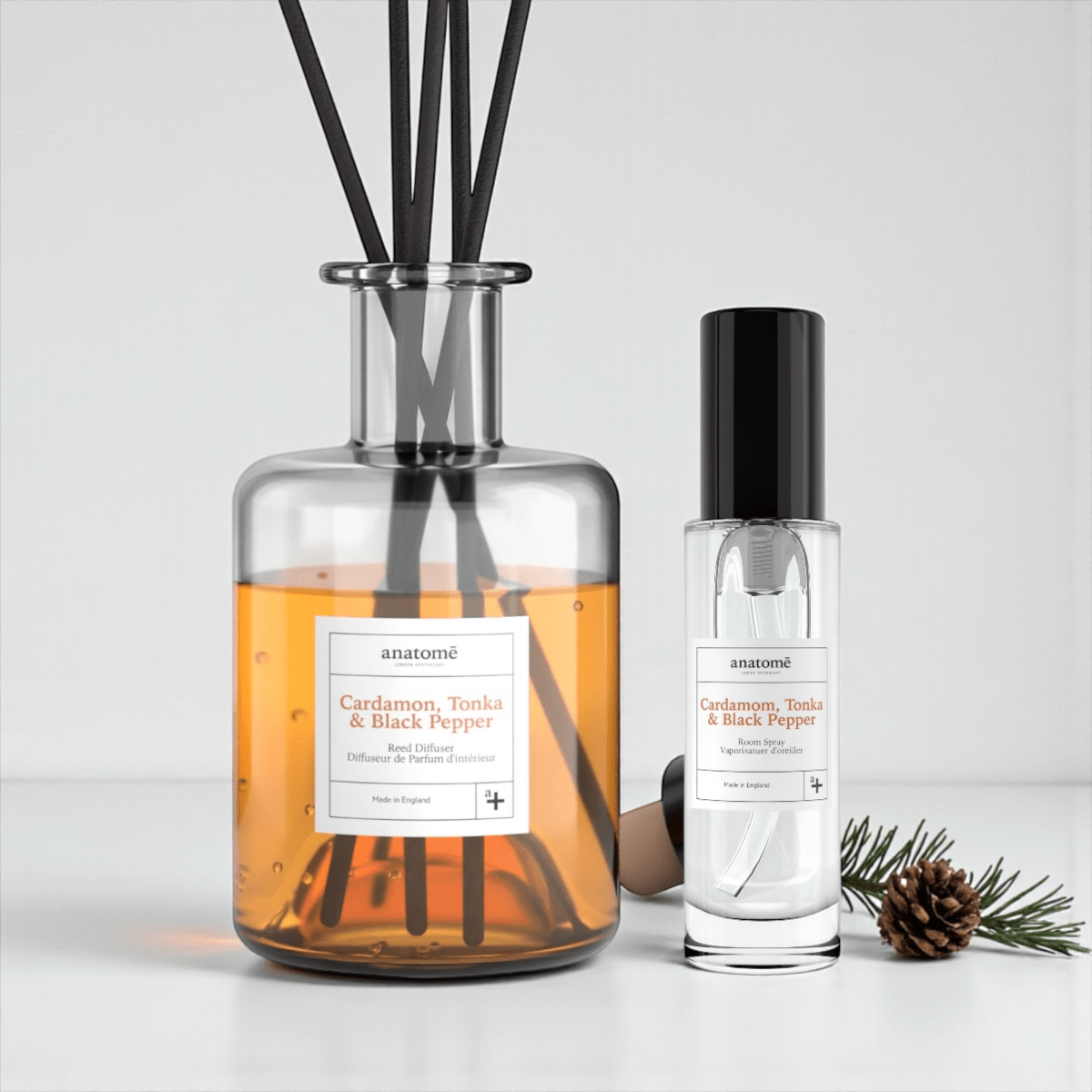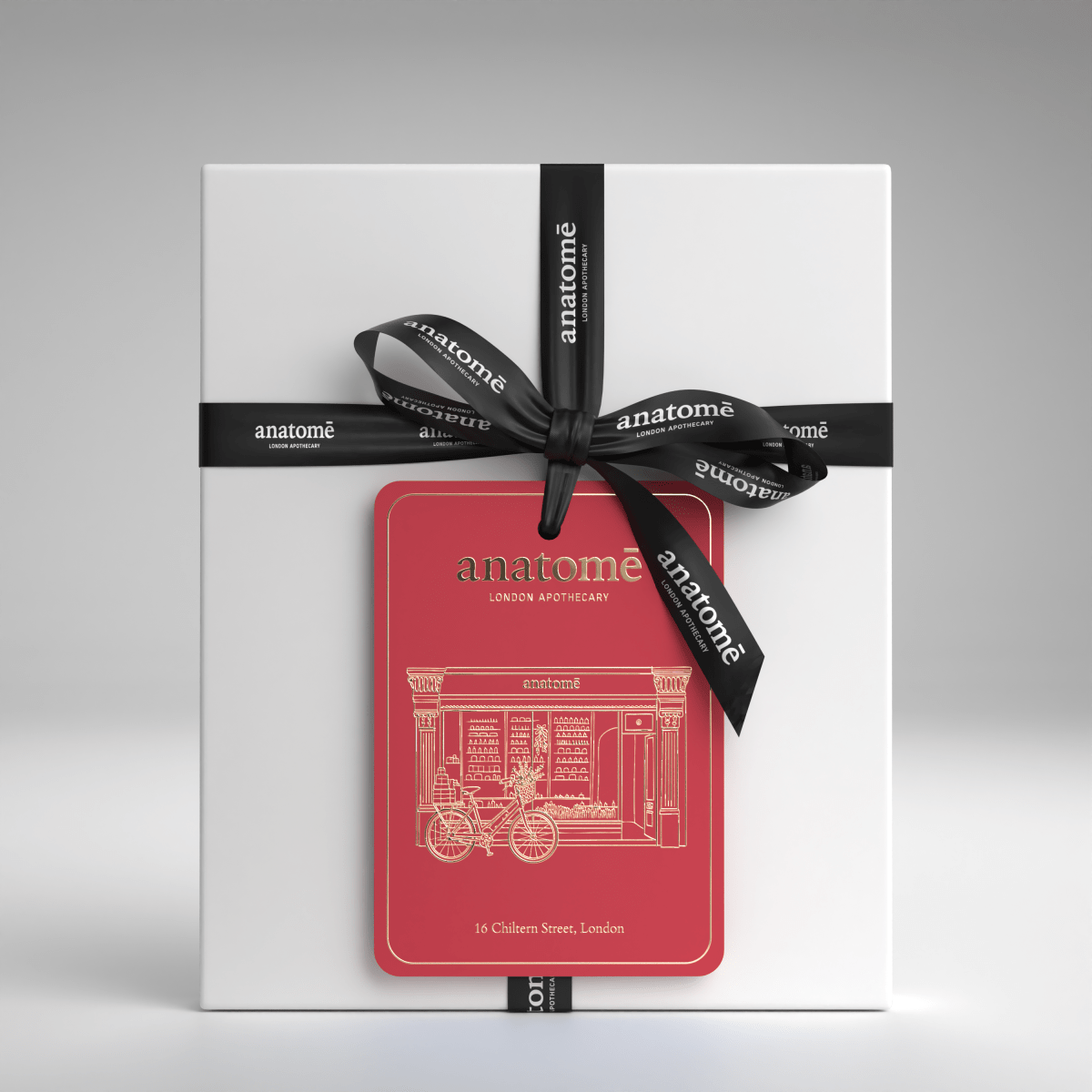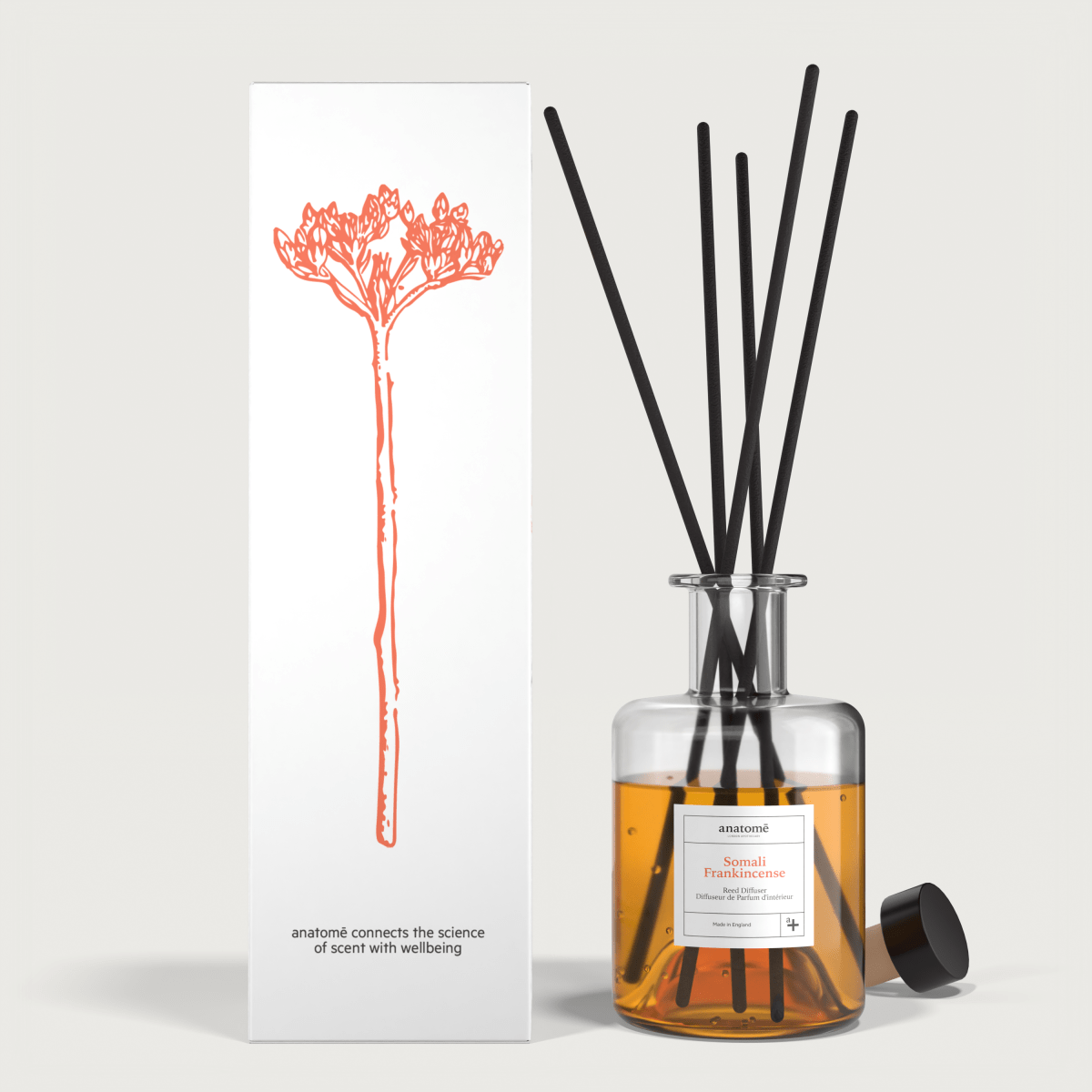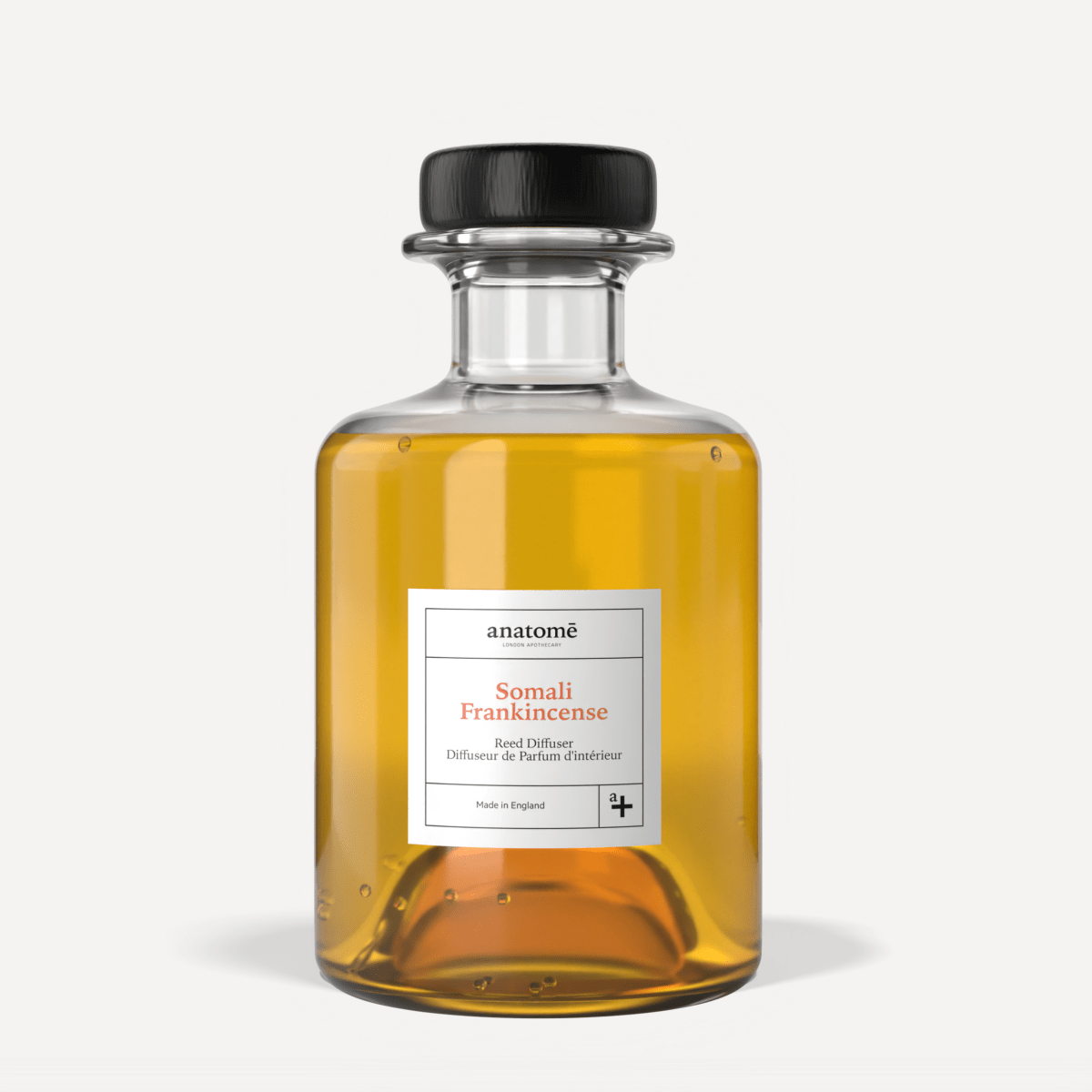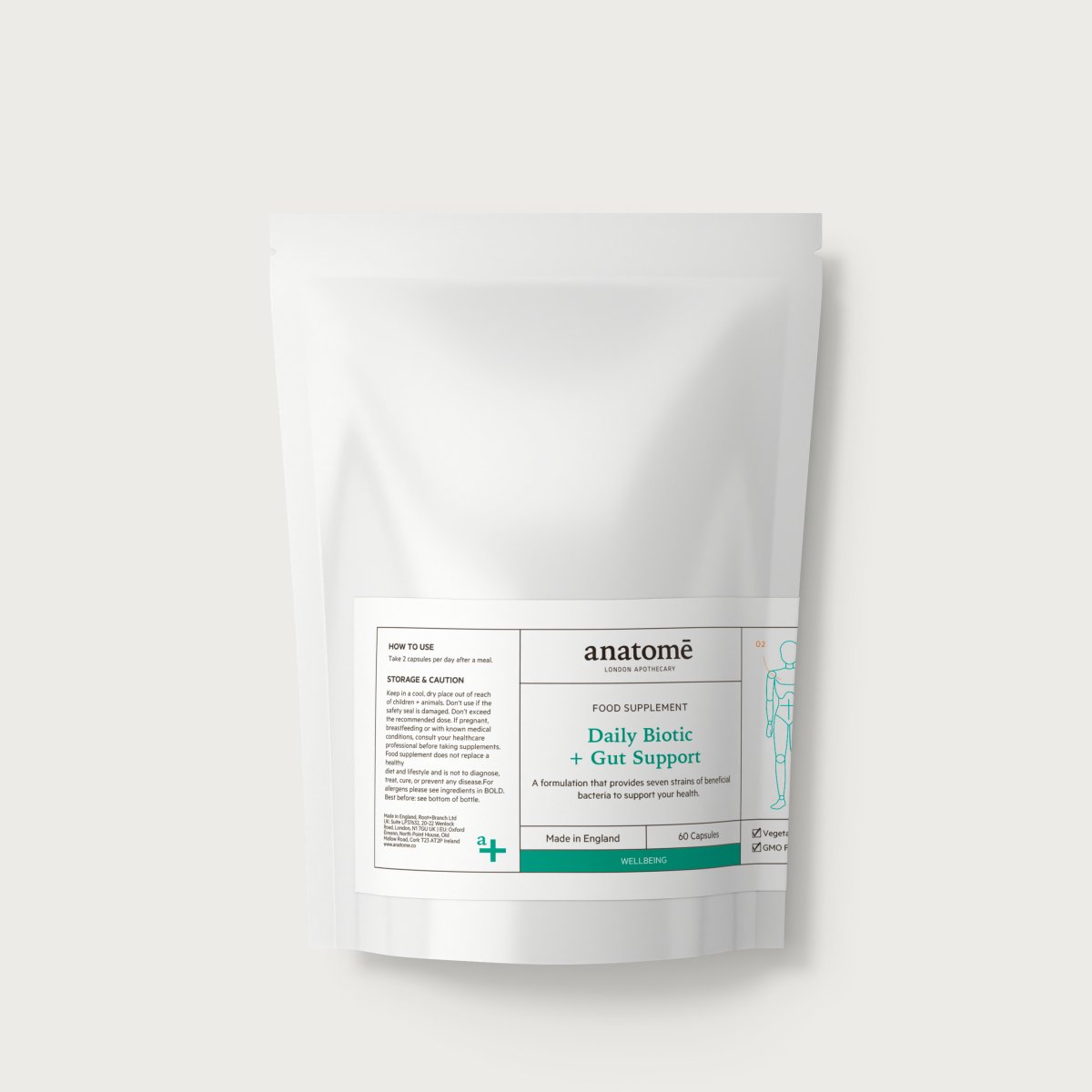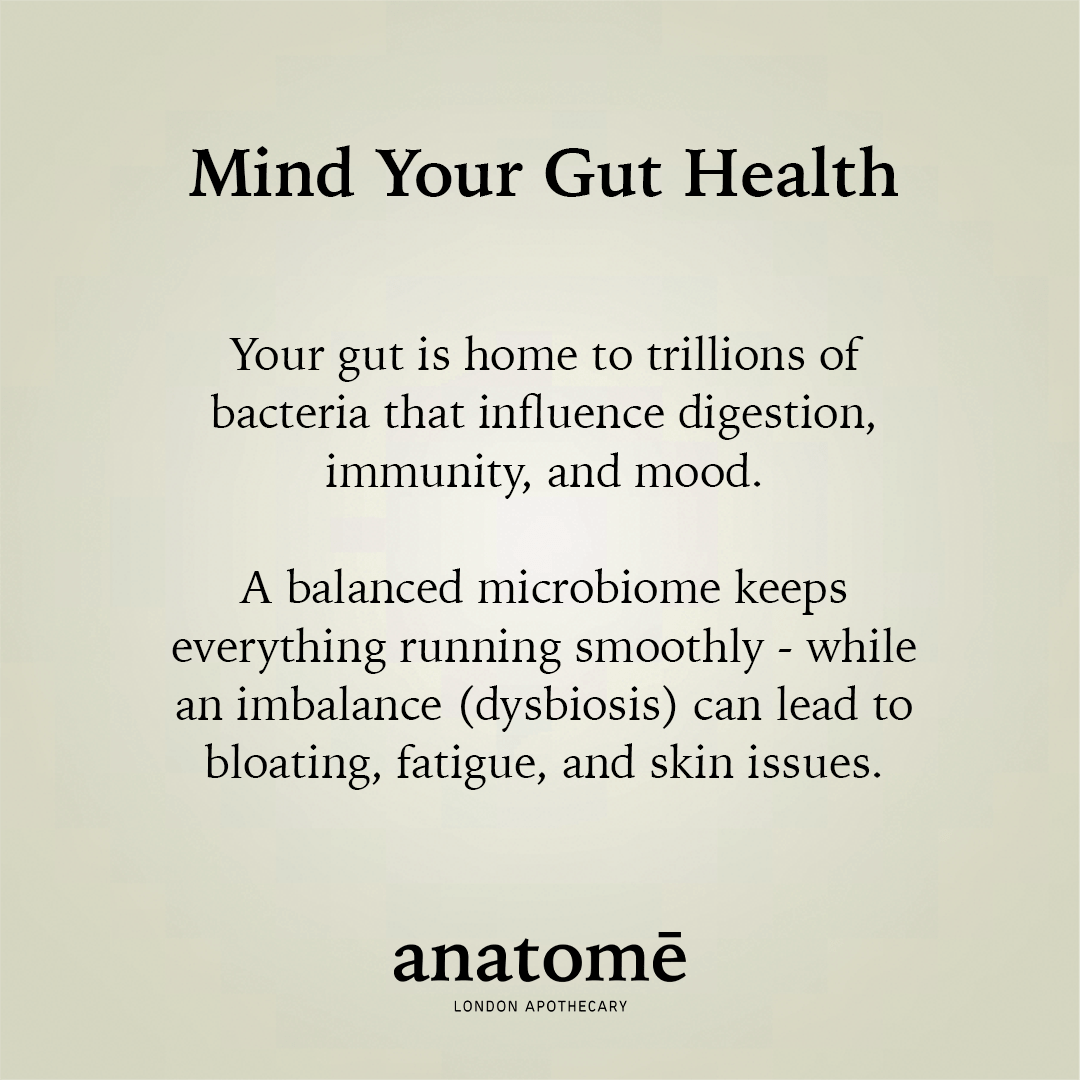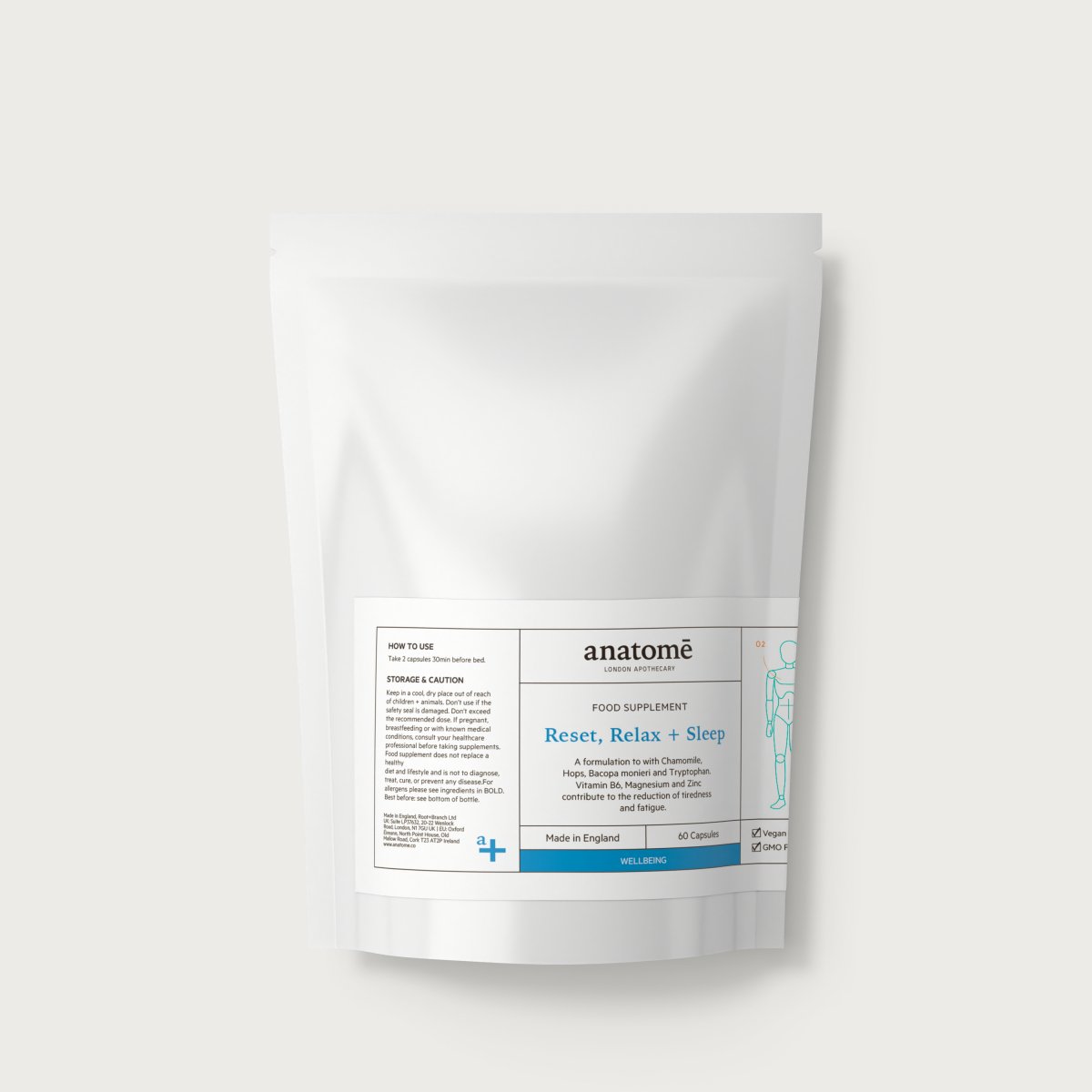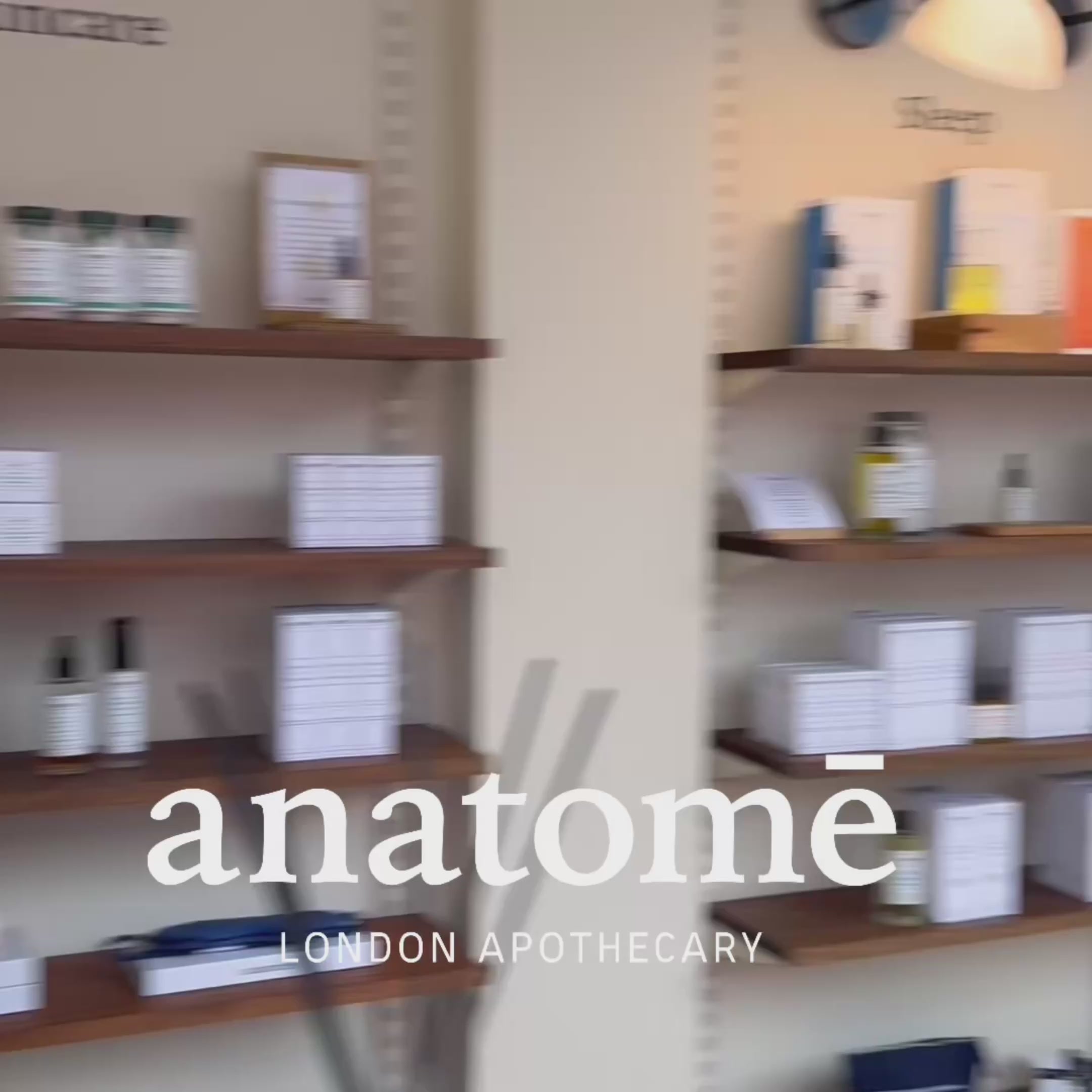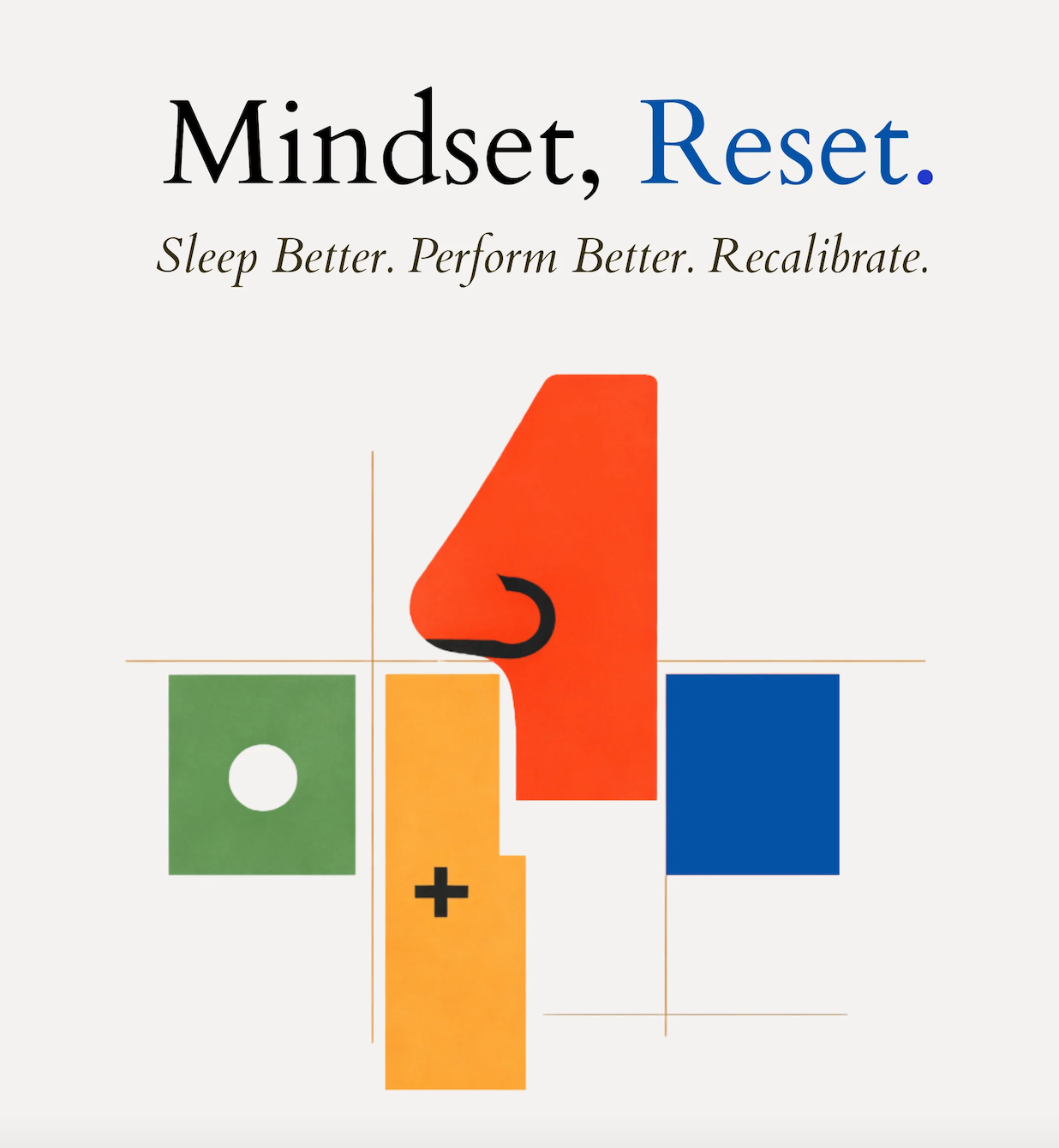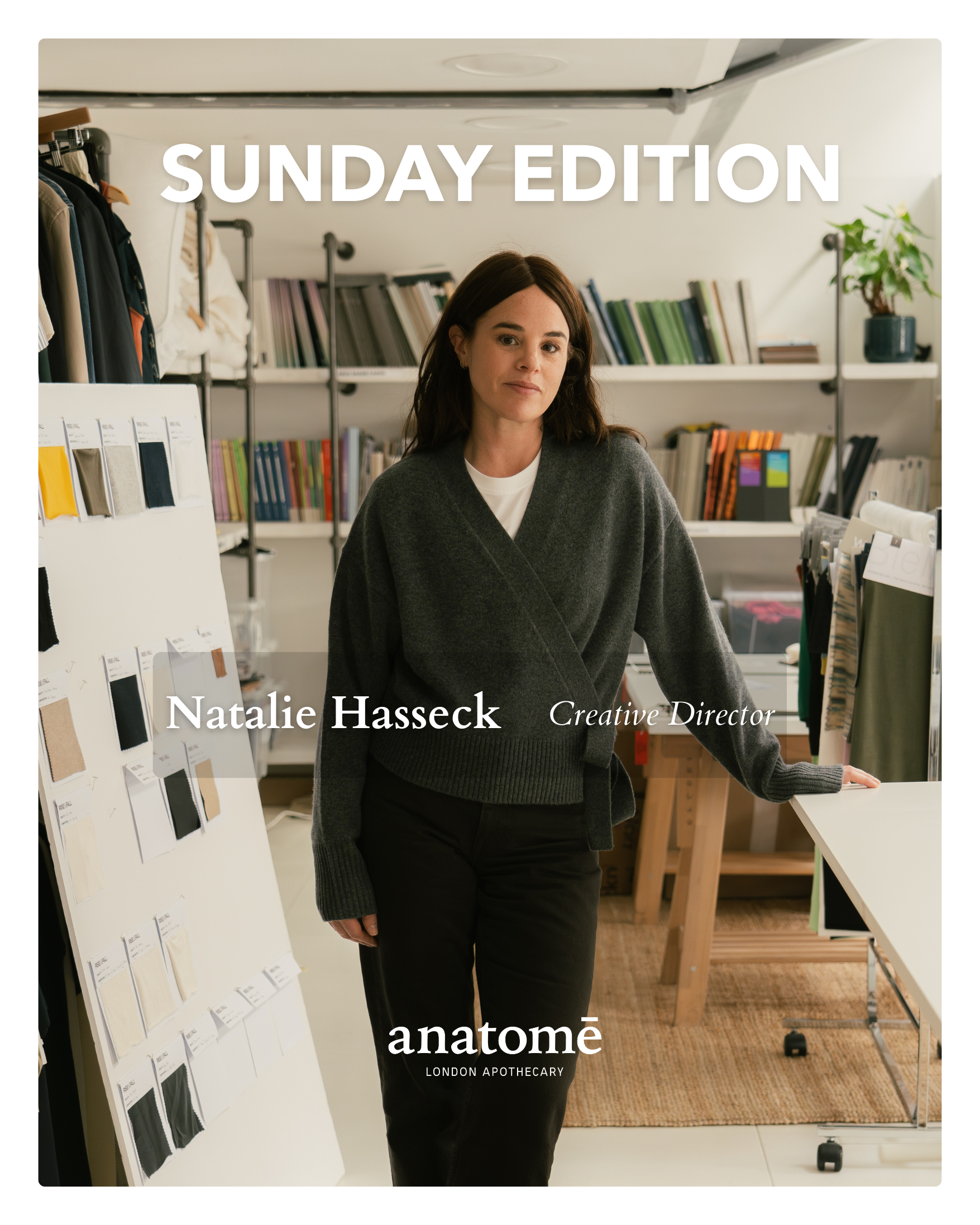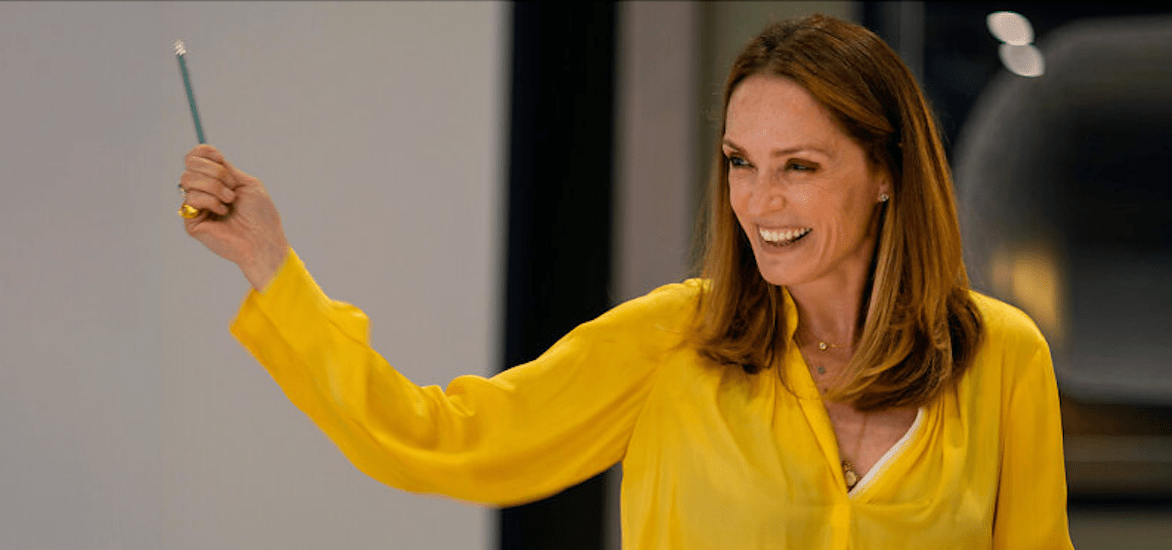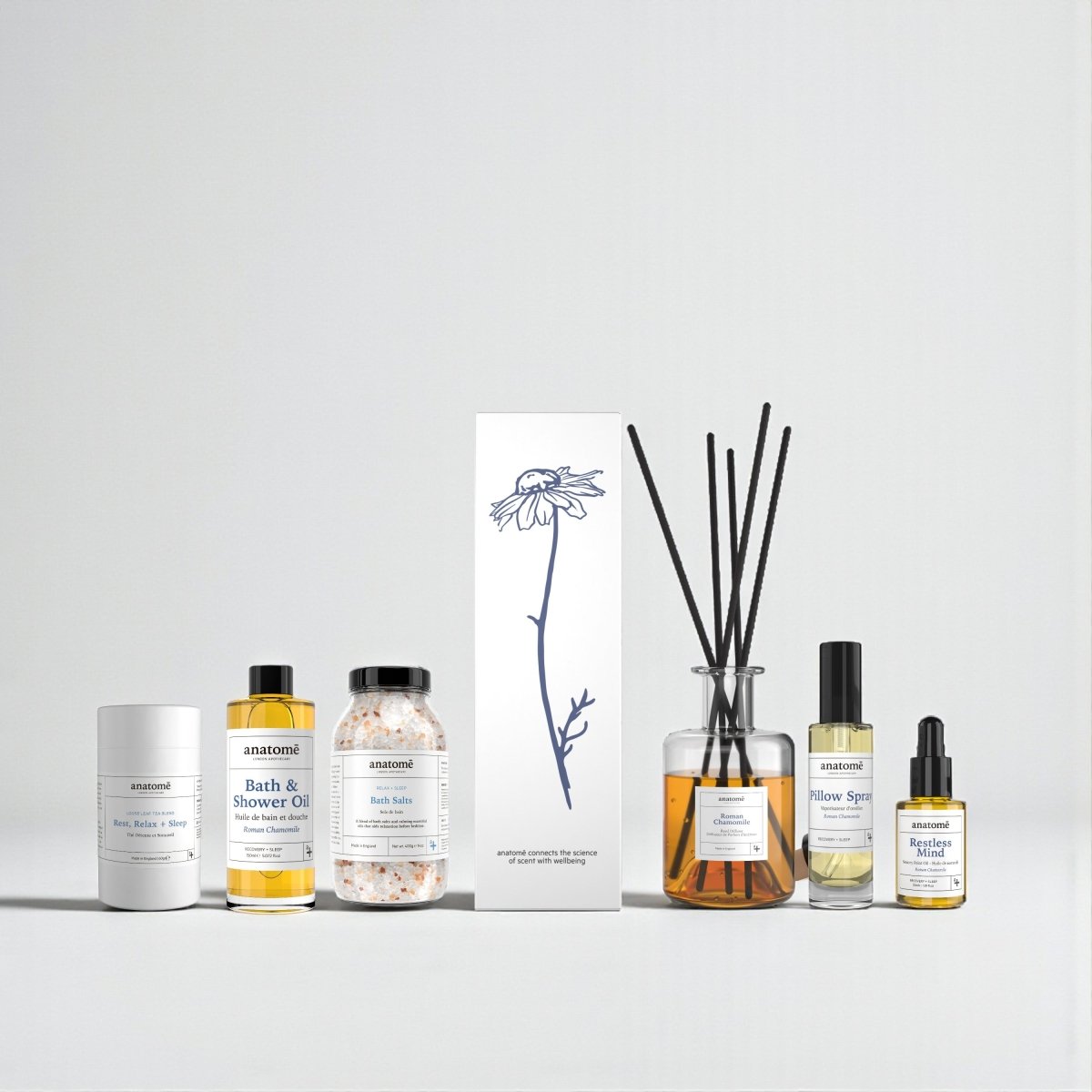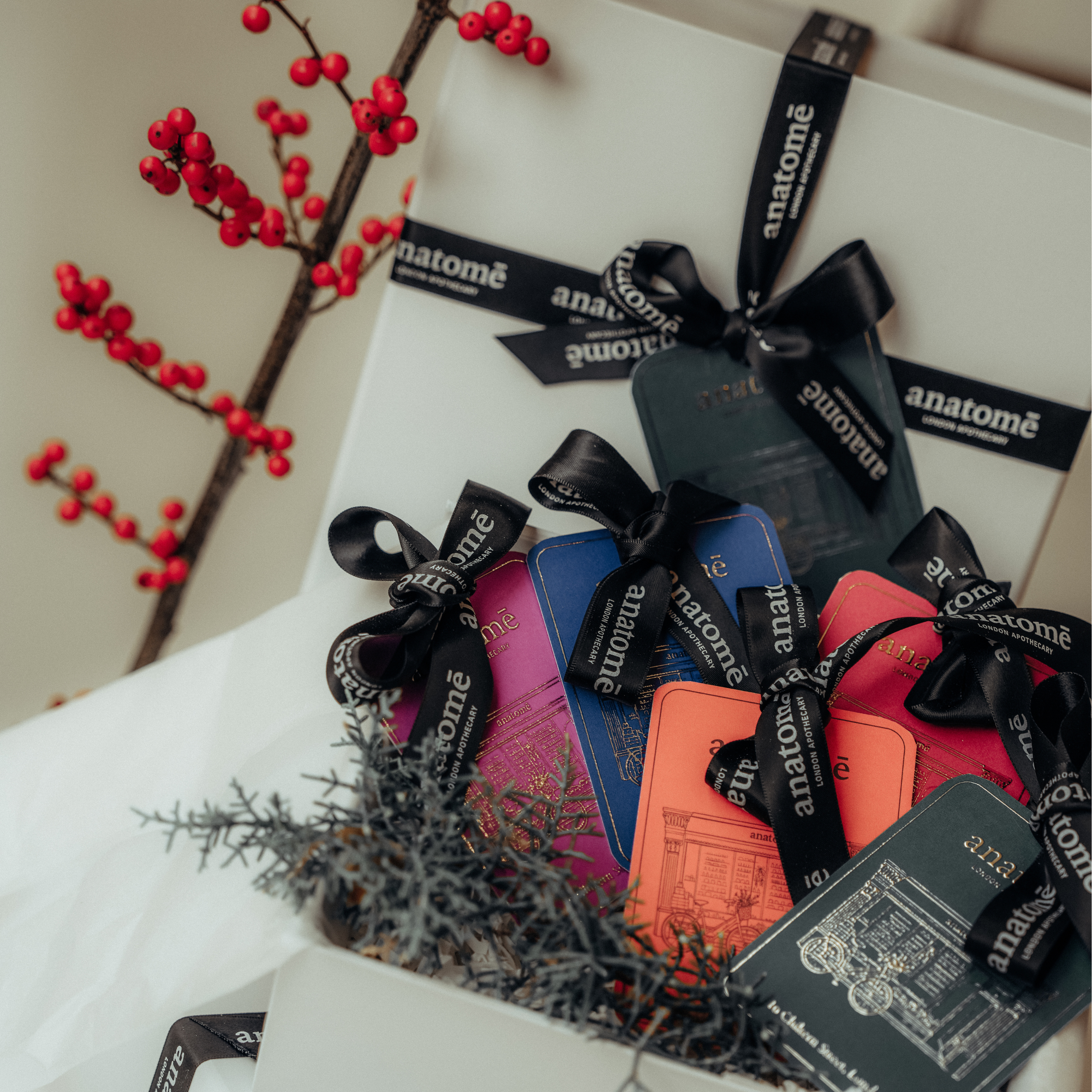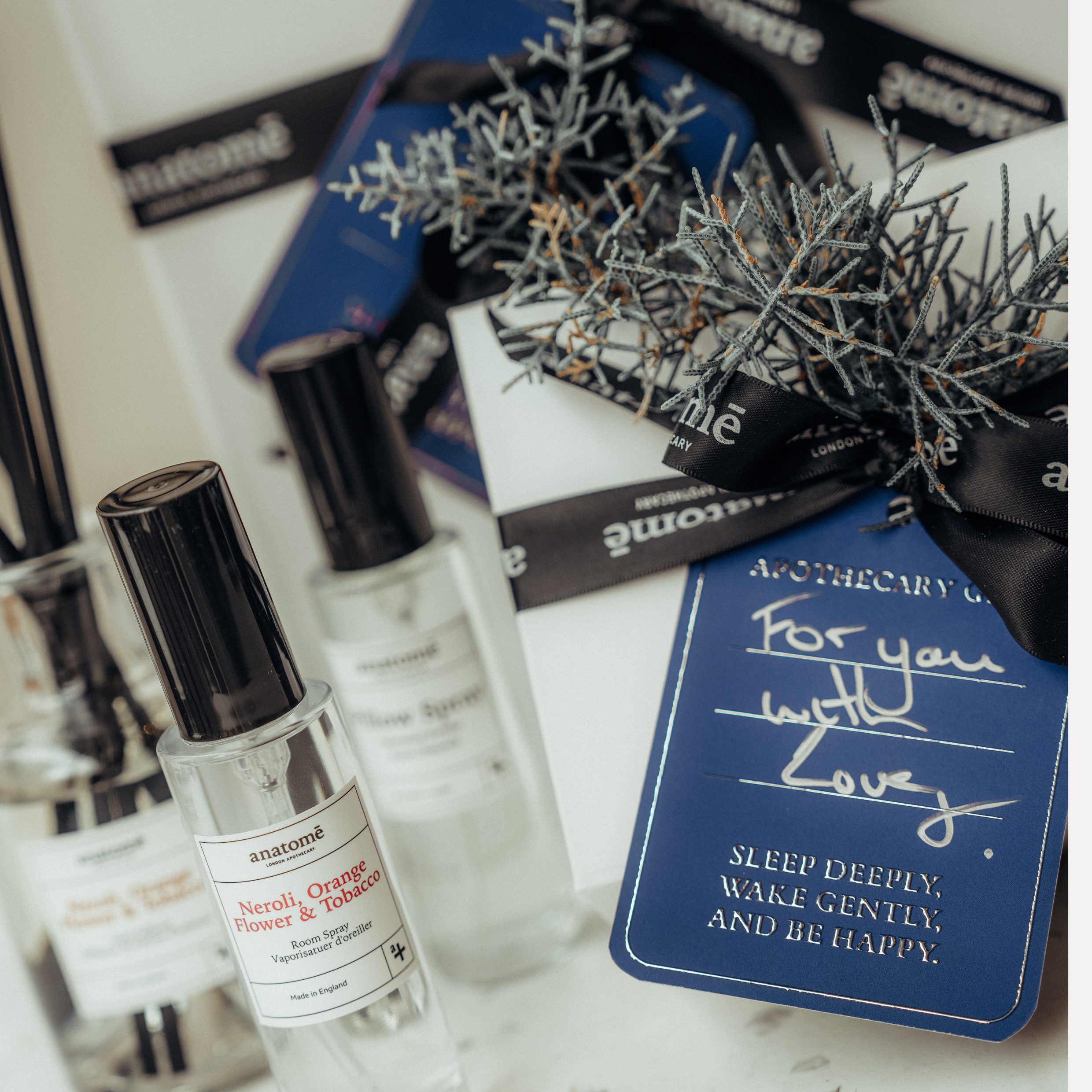Interview with Jo Glynn Smith | The Power of Scent and Success
This Sunday Edition, anatomē speaks with Jo Glynn Smith—Certified Transformation Coach and upcoming Be Well Collective expert on the power of scent, mindset, and modern wellbeing. Jo shares her unique “inside-out” approach to performance, drawing on Core Energy Coaching™ and decades of experience helping leaders unlock confidence, clarity, and calm. From micro-habits and restorative rest to the role of scent in success, Jo offers accessible strategies for finding balance.

Discover her journey and what to expect from her upcoming talk with anatomē:
Your work focuses on enhancing productivity, mindset, and focus to drive success. How do these disciplines intersect, and why is an integrated approach to wellbeing so important?
Performance is directly linked to energetic perception and therefore, mindset. How you see the world affects how you show up and approach everything. As a coach, I help my clients positively shift their energetic perception, which broadens their perspective and opens up new opportunities. Wellness is a key part of this transformation: I encourage exercise, rest, and mindfulness as integral components of each client’s journey.
With a foundation in Core Energy Coaching™, what motivated you to enter this field? And what do you believe people gain from collective wellbeing practices?
When I left my corporate career, I spent a lot of time reflecting on what I had loved most about my work, and I kept returning to the idea of helping people feel more confident. I searched for a qualification that would build on the skills I already had and take me in a new direction. I chose to train with iPEC, which teaches Core Energy Coaching™, a method that’s both unique and highly relatable. It complements other wellness practices beautifully, enhancing the overall coaching experience.
Modern life is fast-paced and often overwhelming. What are some of the most effective yet accessible habits people can adopt to bring more balance into their routines?
Most of the people I coach are senior executives or entrepreneurs, time-poor and often lacking structure due to business or travel. We begin with micro-habits, starting with healthy morning and evening routines, then introduce small amounts of movement. I also encourage rest as a productivity tool. Many leaders feel guilty when they rest, but reframing it as ‘recharging’ helps them understand its importance.

Your unique ‘inside-out’ approach is central to your work. What makes it such a powerful tool, and how can someone incorporate it, especially with limited time?
Self-awareness is the foundation of leadership and self-leadership. By understanding what motivates or drains us, we gain a clearer view of ourselves, others, and the world. That clarity reduces judgement, lowers stress, and opens up more opportunity. Even a few minutes of reflection or breathwork each day can make a real difference.
Can you share an example of a transformative experience you've witnessed?
The biggest changes I witness are in people’s confidence. When someone lets go of judgement or shame, their world expands. They begin to believe in themselves and achieve more than they ever thought possible.

You’ve spent decades immersed in wellbeing. What non-negotiable practices do you personally follow to stay balanced mentally and physically?
I move as often as I can. I eat the colours of the rainbow and stay hydrated. I prioritise sleep, manage screen time, and make space for friendship and laughter. I reward myself and celebrate small wins, not just the big milestones.
Many struggle with sleep, whether quality, duration, or consistency. What does ‘restorative sleep’ look like to you, and what small shifts can improve it? Sleep has a direct impact on energy and performance. It doesn’t need to be long, just deep. I encourage my clients to prioritise sleep and begin their wind-down early. Reduce screen time, dim the lights, read or listen to a story, meditate, or simply breathe. The key is calming the mind.

If you had to distil your entire approach to wellbeing into one essential piece of advice, what would it be and why? Do what you can to support your mind and body. Small steps count. But give yourself grace when life gets busy. Don’t aim for perfection. Being kind to yourself is also part of wellness.
Your upcoming talk in anatomē’s Be Well Collective explores wellbeing through your unique lens. What can attendees expect to take away?
Unlocking peak performance starts with knowing yourself better. I want attendees to leave with deeper self-awareness, what drives them, what drains them, and what small changes they can make to optimise performance in their own lives.

